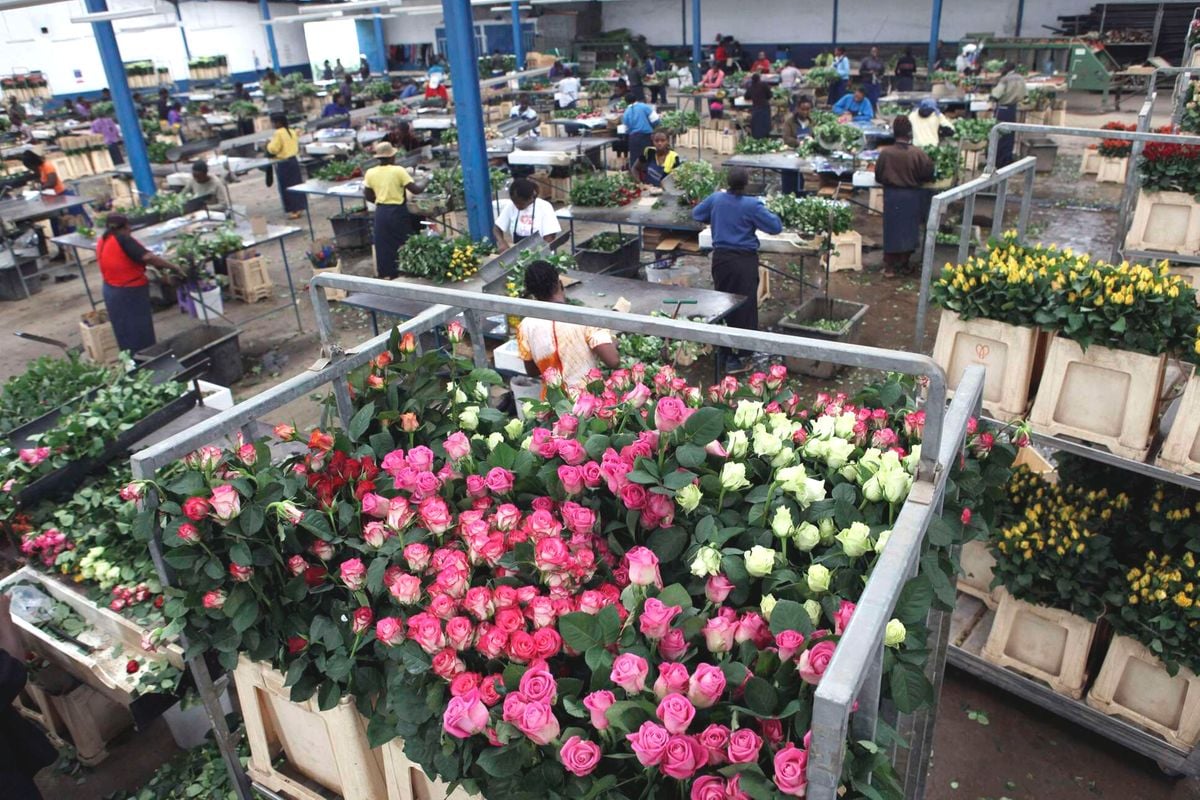Kenya’s horticultural farmers and fresh produce exporters face losses at the onset of the peak season, after several international airlines withdrew their freight services at the main Jomo Kenyatta International Airport (JKIA), citing lower returns compared to other routes.
The dire situation facing the farmers and exporters has further been compounded by the Red Sea crisis which has increased the cost of transit through the Egyptian waterway Suez Canal by $200(Sh 25,795.06) per refrigerated (reef) container and prolonged the transit period by 10 days as vessels take longer route through the Cape of Good Hope in South Africa to Europe.
The horticultural sector generated Sh157 billion ($1.21 billion) in export earnings in 2023, according to data from the Agriculture and Food Authority (AFA).
The Shippers Council of Eastern Africa (SCEA), a lobby representing importers and exporters, urged the government to swiftly address the looming logistics crisis at JKIA by allowing temporary approvals of freighters to fill the gap, currently estimated at 800 tonnes and to consider wet-leasing of cargo airlines.
“The situation at the JKIA is worse this week. We are over 800 tonnes less than in capacity than the week last year, “Agayo Ogambi, Chief Executive Officer of SCEA said.
“This results in delayed delivery, loss of markets and affects the shelf life of the products resulting in huge losses. We are asking the government to deeply consider temporary approval of freighters to fill the gap which currently is estimated at about 800 tonnes and which could get worse in the near future” he added.
Wet-leasing refers to paying to use an aircraft with crew, fuel, and insurance for a short period of time while dry-leasing is for the long term.
Sources at the JKIA revealed that key international cargo airlines such as Qatar, Turkish, and Magma Aviation have temporarily withdrawn some of their freighters with Cargolux Airlines International S.A., a flag carrier cargo airline of Luxembourg expected to join the fray on Friday (October 4).
The sources said the withdrawal of freight services by these airlines has significantly reduced capacity resulting in roll-overs of between 200 tonnes and 300 tonnes.
“That is actually true. You know these are very expensive equipment and these are airlines which are in business. Today when you move any of our products like flowers and vegetables the rates are quite low and today the rates from China to the US are very high in the region of $8(Sh 1,031.79) to $12(Sh 1,547.70) per kilogramme and from India in the region of $10 per kiogramme. In Kenya the rates are quite low from $2(Sh 257.95) to $3(Sh 386.92) per kilogramme,” a Chief Executive of a logistics company who didn’t want to be named said.
“If you are a businessman you will invest where you are getting the maximum returns and that is exactly what is happening with these airlines” the source added.
According to the SCEA foreign cargo airlines have been enticed by relatively ‘better’ pay for their services in other global jurisdictions because of the increasing activities ahead of the festive season.
For instance, from Asia to the US where these cargo airlines are getting up to $8 per kilogramme compared to Kenya they are getting from $2.5 (Sh322.43) to $2.8(Sh 361.12) per kilogramme.
“There is higher demand and higher pay for their services in other global markets. The other reason is that they don’t have a binding agreement to serve Kenya. Most of them are bilateral agreements that do not bind them to operate here and so they can leave at their own will. This is a contractual challenge,” said Mr. Ogambi.
The logistics crisis facing the fresh produce earmarked for airlifting to the European market through the JKIA has increased the cargo rollovers by about 200 tonnes to 300 tonnes, according to SCEA.
Sources said Qatar Airways has withdrawn two freighters carrying flowers from Nairobi to Liege (Belgium) resulting in a 200 tonnes drop in capacity while Turkish Airlines removed one freighter per week service from Nairobi to Maastricht (Netherlands) affecting flowers leading to a further 100 tonnes decline.
The reduced capacity has translated to increased airfreight costs from about $2.3(Sh 296.64) per kilogramme to between $3.57(Sh 460.45) and $3.6(Sh 464.32) per kilogramme.
The management of Qatar and Turkish cargo airlines could not respond to our emailed questions at the time of going to the press while calls and text messages to the cellphone of Kenya’s Principal Secretary for Agriculture Paul Rono went unanswered.
“In relation to your below enquiry and telephone conversation and as per our company policy, regret to advise that I am not authorised to give information on behalf of the company. Thanks,” said Humphrey Aluanga, Qatar Airways Cargo Sales Manager-Kenya.
Kenya’s economy is firmly rooted in agriculture, with horticulture taking a prominent place. The sector has become one of the country’s main sources of foreign income, serving a wide audience by exporting Kenyan f¬lowers to more than 60 countries.
Kenya’s global share of exports of fruits and vegetables stood at 12 percent and 6 percent in 2023 respectively.
On the other hand, Kenya’s share of global fruit and vegetable production was 0.5 percent and 0.3 percent respectively in the same period according to data from AFA.
The major fruits produced in 2023 were bananas (34 percent), avocado (23 percent), mangoes (16 percent), oranges (5.8 percent), and watermelon (five percent). The other major fruits were pawpaw, pineapple, and Lime.
The top fruit exports in 2023 were avocado, pineapples, mangoes, apples, oranges, and Raspberries.
On the other significant vegetables produced included tomatoes, cabbages, kales, garden peas, bulbs, onions, spinach, and French beans.

